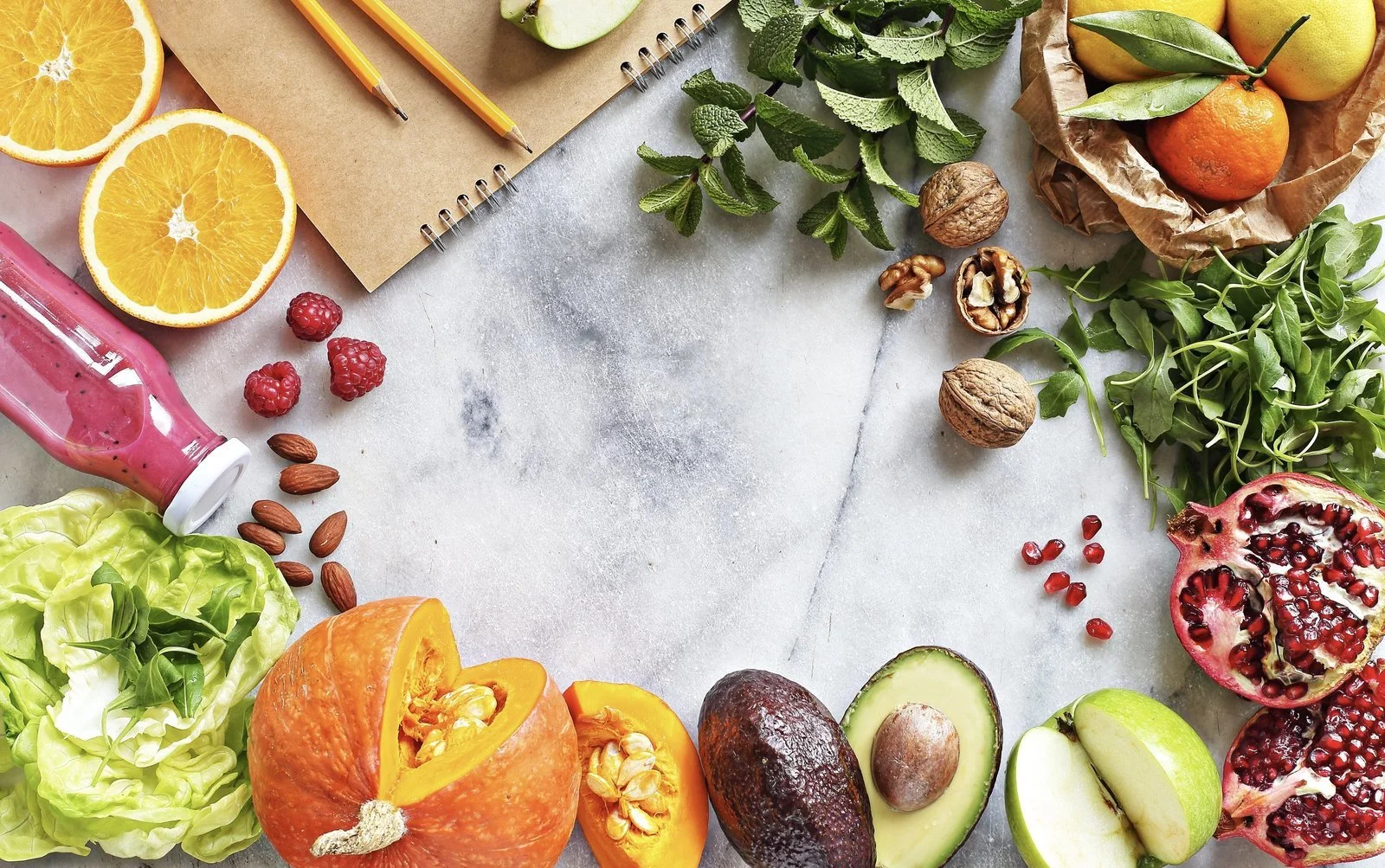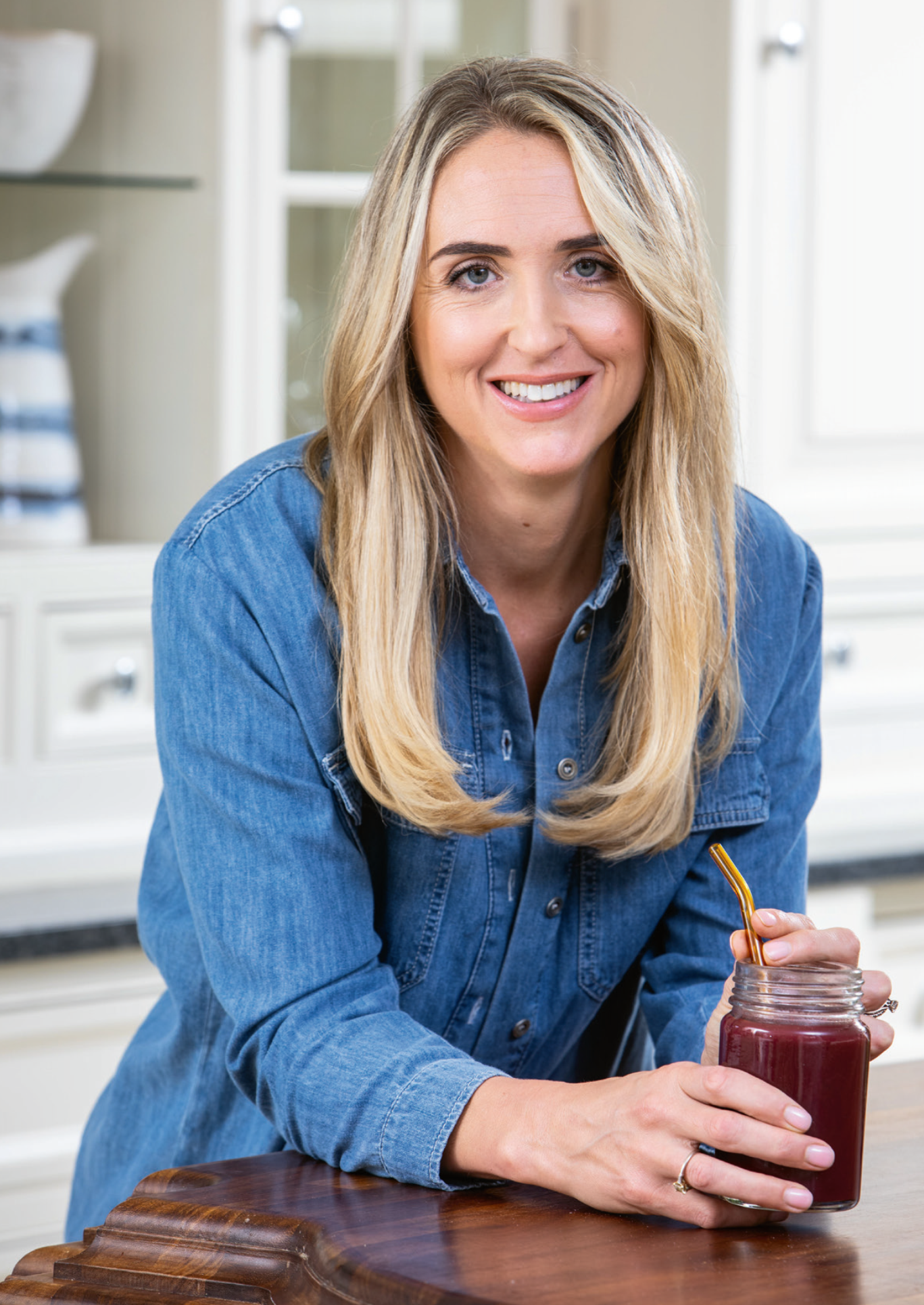Fertility Diet: 5 Ways to Support Fertility Naturally
5 ways to support fertility naturally
1. Take a food first approach.
Support your fertility primarily through a nutrient-rich, whole foods diet. This is about embracing foods in their natural state with an emphasis on food quality. Your body runs on nutrients from food, so it makes sense that good-quality food should provide the foundation of your nutritional intake. Growing a baby is hard work, so by eating a nutrient-rich diet you will equip yourself with the building blocks your body needs to make a baby. Supplements are just that – supplements to real food.
It is still a good idea to take a good-quality multivitamin to help cover any nutrient gaps and imperfections in your diet and provide extra fertility support. It is well established that taking a daily antioxidant supplement improves sperm quality. A prenatal multivitamin containing methylated B vitamins, such as folate, vitamin B12 and vitamin B6, as well as antioxidant nutrients such as vitamin C, vitamin E, selenium and zinc, will support female fertility and help to protect egg cells from oxidative stress caused by free radicals.
2. Eat more plants.
Make plants the foundation of your diet. A healthy food pattern is diverse, varied and colorful. Eating the rainbow is a game-changer at helping you to get the nutrients that you and your future baby need to thrive. It’s as straightforward as eating all the colors of the rainbow every day and aiming for variety: 30 different plants over the course of a week.
Aim to make the most of seasonal vegetables, which have earned their place to be front and centre of your plate. This will naturally bring variety into your diet. When planning and cooking be flexible; follow the ebb and flow of the seasons and substitute the vegetables in recipes accordingly.
For much of the year foods are not at their best, so eating with the seasons is such a treat and privilege. Vegetables taste superior in season when they are picked at their peak. They are also better for you as they are richer in nutrients. Fresh, local ingredients are key to a healthy, flavor-packed diet and there is almost always something good, fresh and locally produced for us all to enjoy.
3. Eat dense.
This simply means choosing foods that have a nutrient-rich profile (more bang for your buck!). For example, a plate of vegetables contains an abundance of vitamins and minerals, whereas a plate of refined pasta does not. Nutrient-rich foods best support fertility and overall health. Normal bodily processes such as detoxification require a lot of nutrients for optimal function. If your dietary intake of vital nutrients is low, your body will prioritize these essential functions over your fertility.
The nutrient-density of your meals can be affected by food selection, storage and cooking. Eat fresh vegetables abundantly and enjoy them as soon as you can after purchase – the longer they are stored, the more nutrients they lose. Eat a variety of cooked and raw vegetables and remember to make use of your freezer. Frozen vegetables are typically picked ripe and flash-frozen to preserve their nutrition. They can be a better choice than fresh, which quickly lose nutrients. You can also buy ready-chopped frozen vegetables and herbs, which makes life easier. Frozen seafood tends to be more affordable than fresh, which is a bonus!
4. Know your sources.
Buying your food locally helps support your community and its farmers. You will know the origin of your food and be able to eat consciously. Quality of food is key and is especially important when buying meat and fish. Food writer Michael Pollan said it best: ‘You are what you eat eats’.
Shop with integrity and favor organic, grass-fed meat, organic free-range poultry and eggs, and wild-caught fish. If you have a small budget for organic, this is where I urge you to prioritize. Buy humanely raised animals that have been fed their natural diet. Ensure that you can trace your food back to source.
5. Go organic.
Switch to organic for reduced exposure to pesticides and toxic metals and increased nutrient-density. If budget is an issue, look for organic frozen fruit and vegetables, which can be cheaper. Seasonal organic produce should also cost less than vegetables that are out of season. If your budget won’t stretch to organic all the time, then prioritize buying the dirty dozen (most sprayed crops) organic and don’t worry about the cleaner crops (refer to the Environmental Working Group’s dirty dozen and clean fifteen). However, it’s much better to eat vegetables than to avoid them because they’re not organic, so if you can’t justify the extra spend, then don’t stress.
Charlotte Grand is a registered Nutritional Therapist, fertility nutrition expert and creator of the popular Instagram channel @thefertilitykitchen where she shares her wholesome balanced approach alongside deliciously simple, everyday recipes. Charlotte has spent almost ten years specializing in preconception and fertility, and in her private practice supports her clients to transform their health in preparation for conception and pregnancy.
You can also follow Charlotte on Facebook or learn more about her here!
About The Fertility Kitchen book
The Fertility Kitchen is the go-to cookbook for anyone trying to conceive. Whether you’re just starting to think about having a baby, have been trying for a while or you’re navigating fertility treatment, The Fertility Kitchen will support and empower you.
In part one, Charlotte shares her expertly tailored, nutrient-rich fertility nutrition and lifestyle plan, covering food, supplements, stress, sleep, movement, environment and mindset. Part two helps you put this plan into practice and is brimming with over 90 vibrant, flavor-packed yet simple recipes embracing everything that’s good for fertility. Charlotte addresses the key areas of health that can affect fertility, helping you to reconnect with you with your body and personalize your diet to suit your unique needs, as well as outlining the impact lifestyle can have and offering strategies to achieve balance across all aspects of life.
Medical Disclaimer:
The information provided in this blog is intended for general informational purposes only and should not be considered as a substitute for professional medical advice, diagnosis, or treatment. Always seek the advice of your healthcare provider or qualified medical professional with any questions you may have regarding a medical condition. Never disregard professional medical advice or delay in seeking it because of something you have read in this blog.









